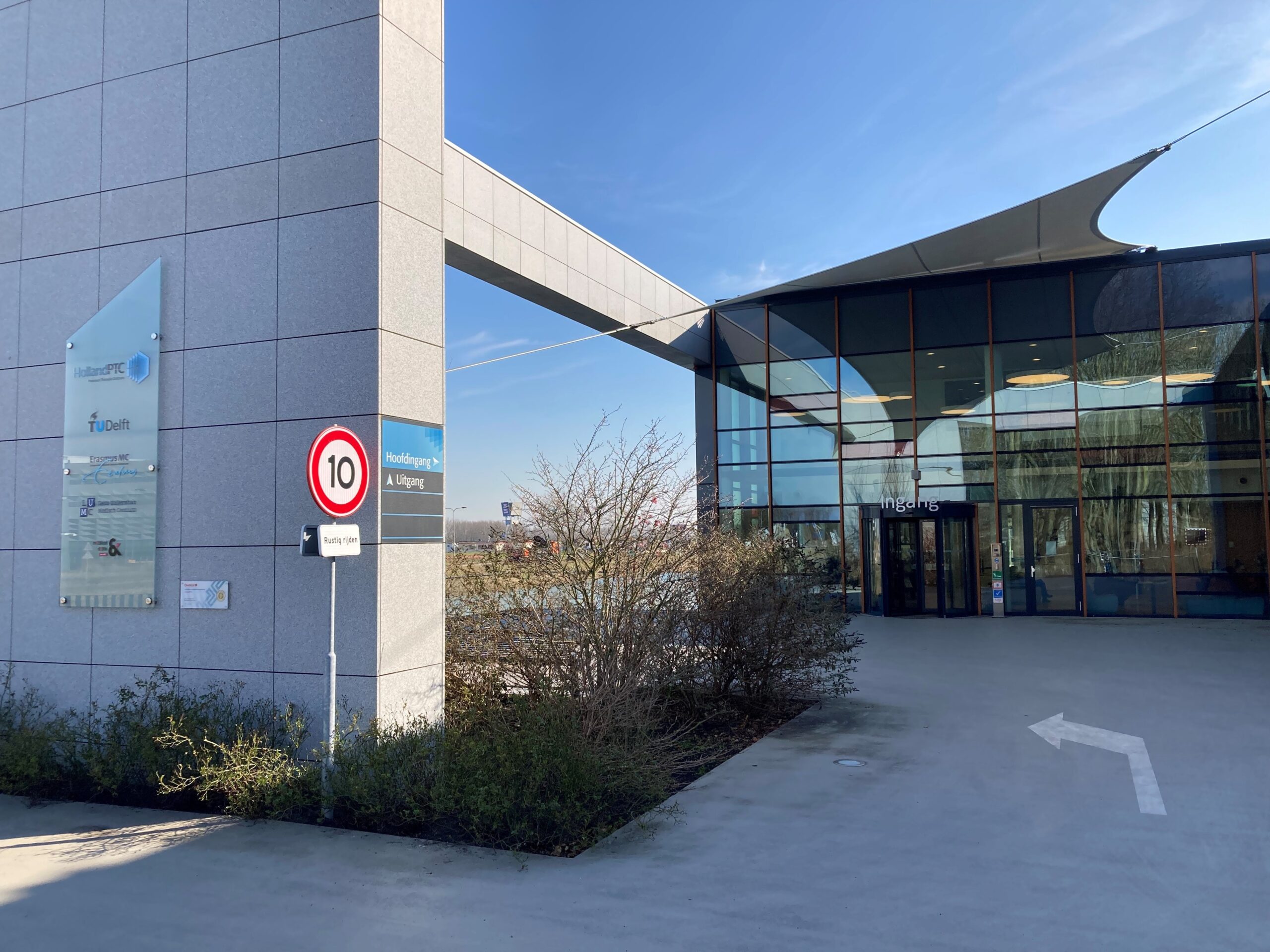Holland PTC continues to struggle financially. The proton therapy clinic on TU Delft’s campus is therefore economising and is receiving new loans from its shareholders: TU Delft and Rotterdam’s and Leiden’s medical centres. The burning question is what will happen now.
(Photo: Jos Wassink)
Holland PTC is not making ends meet financially from the start in 2018. In the first few years this was seen as logical. Its income depends on the number of patients and this number needed to grow. But last year, management and shareholders considered it time to examine the expenditures and revenues. An assessment showed that the healthcare part of the clinic – where patients receive proton therapy – was breaking even (see box). That may be less than the clinic originally hoped for, but it is the research side (the main reason for TU Delft’s involvement in the project) where the problems are more pressing. The business case here is not working out.
So the shareholders are helping out again this year. TU Delft, Erasmus MC and Leiden MC are each giving loans of EUR 1.1 million in 2025. This is on top of the annual contribution given to research facilities. In 2025, this amounts to EUR 300,000 per institution.
Guarantors
It is not the first time that the shareholders are willing to dig deep for the proton therapy clinic. This was the case right from the start. The three are guarantors for a loan at the time of EUR 90 million from the European Investment Bank. The money was used to build the clinic. Should the clinic be disbanded, it would mean that TU Delft and the medical centres will each have to pay EUR 30 million.
There is thus much at stake to keep the clinic going, not only for the patients and the research, but also from a financial perspective. In 2024 the NRC newspaper listed the costs over the years. The newspaper worked out that in 2021 just for TU Delft, the amount was almost EUR 18 million in contributions and loans. In 2022 this rose by EUR 3 million.
Damage limitation scenario
In 2021 and 2022, TU Delft also converted two loans worth EUR 5 million into shares so that the money would not need to be paid back. And in 2022, TU Delft lent the proton therapy clinic another EUR 4.5 million which must be paid back by 2028.
Now that TU Delft itself has to economise significantly, it looks like the funding for Holland PTC is drying up. An Executive Board meeting report says that TU Delft, as the other shareholders have done, agreed to a ‘damage limitation scenario’ for the future.
This means that over the next two years the proton therapy clinic needs to reduce its expenditures by EUR 1 million by postponing investments and not automatically filling vacancies.
Research output
For the further future, the premise is that TU Delft ‘will not continuously add more money’, explains Paul Althuis, Director of the TU Delft holding (TU Delft Services) and thus shareholder of Holland PTC. “It must be assessed whether the research side of Holland PTC can still grow while spending less or if it needs to downscale further.” He says that the three shareholders and the proton therapy clinic’s management are ‘working out the future perspectives’.
Althuis says that the solution for growth is likely to be found in external research subsidies. The proton therapy clinic’s research output is as yet not that extensive. The TU Delft repository contains five scientific publications and eight graduation reports. But there may be more in the pipeline as, according to Althuis, in 2023 there were 12 PhD candidates, seven post-docs, and 29 graduates working at Holland PTC.
Patients
At the outset, Holland PTC aimed to grow to 600 patients a year. That number has not been achieved. In 2024, there were 447. In 2025, the clinic expects 460. With 450 patients the costs and revenues break even, says Paul Althuis. He believes that 460 is a good number. “The original high goals are detrimental for us now, but in the end hundreds of patients are helped every year and we should do everything we can to keep that going.”
-
Higher education is in dire financial straits. TU Delft, too, cannot escape cutbacks. What does it all mean? In our Budget Cuts File we keep you informed.
Do you have a question or comment about this article?
s.m.bonger@tudelft.nl



Comments are closed.